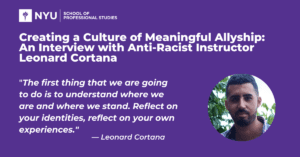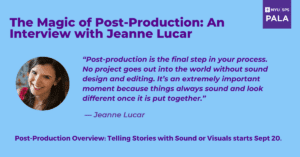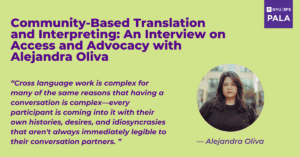In 2021, Leonard Cortana partnered with SPS PALA to create a series of racial literacy and anti-racist workshops. The goal was to start a conversation on race and bring various perspectives together within the NYU community. How can individuals effectively promote and achieve anti-racism in their own lives? These workshops focus on how to create a culture of meaningful allyship, and to identify possible biases each of us might encounter in this work. This series will start on November 2 and includes: Racial and Social Justice Offline and Online, Digital Identities: From Social Networks to Deepfakes, The Battle Against Online Misinformation.
Cortana is currently a Ph.D. Candidate at the Cinema Studies Department at NYU Tisch School of the Arts and a Fellow at the Berkman Klein Center, Harvard Law School. He was also recently selected to participate, as a UN fellow, in the 12th edition of the OHCHR Fellowship programme for People of African Descent. He is researching the racial justice narratives of assassinated anti-racist and feminist activists, and how those narratives may vary in different parts of the world.
This workshop series offers a space for reflection, which can be difficult to come by in our social media-laden world. “[We] needed a space to actually just come together, learn new concepts and new vocabulary,” Cortana said. He explained that while many of us may see resources on social networks about allyship, he stressed that we need to take that awareness one step further beyond hashtag activism.
“These [ideas] are not something that can come up without having the moment to reflect on your own identity and experience and without having a chance to be with a group and to exchange different experiences. That’s why we decided to design these workshops.”
How can you become a better ally? This endeavour first needs to come with the understanding that allyship is a lifelong process. You cannot simply become an ally overnight—to be an ally is a continuous role, which requires patience.
Cortana explained that he starts the workshop with personal reflection. “The first thing that we are going to do is to understand where we are and where we stand. Reflect on your identities, reflect on your own experiences. Part of being an ally in that sense is to understand first, how much you want to put in that work [and] how much you are able.” He added, “I think it’s important to maybe keep to one fight or to one specific cause that is close to your heart, close to your experience, close to your surroundings.”
Decolonizing the mind also requires an awareness of the kinds of stories we tell. Each individual has their own unique experience, derived from the environment they were raised in, the media they consume, or the community they surround themselves with. Cortana thinks that storytellers have a critical responsibility when it comes to anti-racist activism. Stories influence how we perceive the world and each other. “Understand that we’ve been living in a world that needs to [use] stereotypes to be able to follow stories,” Cortana said. “If you need to create your own storytelling, you also need to understand how much those stereotypes and those inputs have influenced your way of thinking.”
Cortana also emphasizes that we should be wary of what scholars call “spectacular activism,” when performative measures outweigh an authentic cause. Sometimes individuals may want to be perceived as a good person, ally, or activist more than they are genuinely supporting anti-racist efforts. Cortana says we must resist the temptation that we must do something big to be an activist.
“It’s all the small steps,” Cortana said. “You don’t need to rise as an [activist]. You just need to find your way and to exist in a circle, to exist in a space that is inclusive and that is going to give you a space to be able to align.”
Sign up for Cortana’s Racial Literacy workshop series, which starts on November 2.



